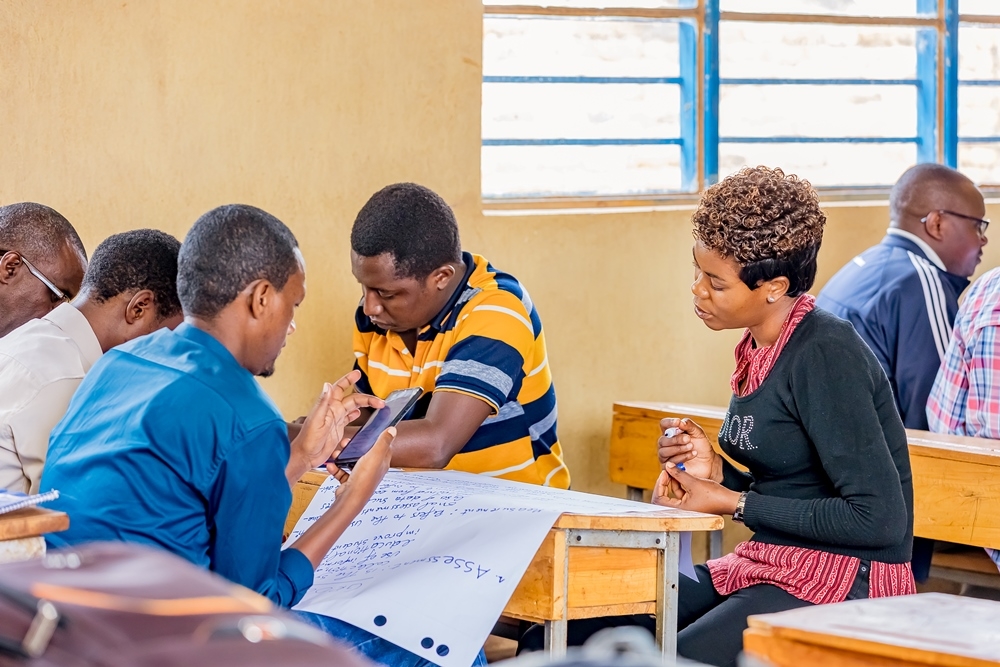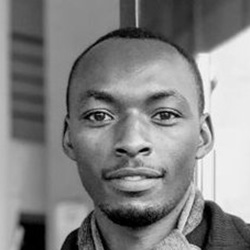

A total of 6,256 mathematics and science teachers from 14 Rwandan districts have completed training offered by the African Institute of Mathematical Sciences (AIMS) Rwanda through its Teacher Training Programme (TTP), supported by the Mastercard Foundation.
The science teacher training program was initiated in 2018 to enhance the quality of education in mathematics and science at the secondary level in Rwanda.
"We believe that mathematics and science are vital for economic growth and social development, and that teachers are the key agents of change in the education system,” explained Prof Sam Yala, the centre president of AIMS Rwanda.
"We also aimed to increase the interest and participation of students, especially girls, in mathematics and science subjects, and to equip them with the skills and competencies they need for the 21st century.”


Prof Yala said young girls and boys should be encouraged to love sciences. Science education helps them develop critical thinking and problem-solving skills, which are essential for innovation and creativity, and in pursuit of careers in sectors such as health care, engineering, and technology, he noted.
Teachers testified to the programme’s benefits.
"Before AIMS training, one would prepare a test for students and begin with hard questions, but now we have learnt that it is better to start with simple questions then harder ones come at the end,” said Sandrine Umwiza, a math teacher from Kayonza District who trained on assessment.
"Thanks to AIMS training, I have gained essential teaching skills in sciences and skills in assessment. Before the training, it was very hard for me to give students practical examples without using labs, but I have now learnt about using improvised methods,” Augustin Umukozi, a physics teacher, said.
Impact of Teacher Training Programme
For the first pillar called training of teachers and master trainers, Prof Yala said they collected and analyzed students' performance data in science subjects from 2017 to 2022 to assess the improvement in mathematics and science exams. The results will be published the results in June. A total of 6,256 teachers, school leaders, and education officers at different levels.
"For the second pillar ‘learning materials resources and ICT support,’ we increased access to and usage of smart classrooms and science kits by teachers and students,” Yala said.
14 smart classrooms were built in 14 districts and 2 smart classrooms at the University of Rwanda, College of Education, providing students with state-of-the-art educational technology. AIMS Rwanda also distributed 200 science kits and equipped nearly 5,000 teachers and sector education inspectors with monthly internet bundles and Close User Group (CUG) to facilitate better communication and access to resources.
For the third pillar "public engagement and outreach", AIMS reached and influenced an increasing number of people through the program’s activities, such as maths camps, science caravans, and teacher awards.
Out of the targeted 228,000 students, we reached 276,323 with 60% of them being female in science caravan and other competitions such as the mathematics problem-solving contest (CMEC) organized in partnership with NESA and Waterloo University.
"For the evidence generation for the policy dialogue pillar, we established quality partnerships with policymakers and private sector actors to support maths and science education in Rwanda,” Prof Yala said.
Challenges
The Teacher Training Program (TTP) has faced challenges such as delayed delivery of science kits, reduced oversight of teachers' work, limited resources for self-learning, increased workload, and sustaining teacher motivation for online training, Yala explained.
"To mitigate these challenges, TTP has adopted management approaches such as enhancing focus on training and engagement of Deans of Studies and Head Teachers, working with teachers to put together sample revision questions, and deploying programming skills, data collection, analysis, and reporting skills to analyze levels of participation by individual teachers,” he said.
TTP has also continuously mobilized teachers through district and sector coordinators and strengthened peer support systems during training.
The success of these measures has been made possible thanks to the continuous support of Mastercard Foundation, which funds the program, AIMS TTP staff, stakeholders such as MINEDUC, REB, NESA, and district education leaders.
Sustaining the gains
To ensure that the achievements of the teacher training programme are sustained, Prof Yala said AIMS put in place several measures. These include a sustainability plan that outlines strategies for ensuring the continued implementation of the project's activities beyond its lifespan; and building partnerships with local organizations and stakeholders to ensure that they take ownership of the project and continue to support it after its completion.
They also provide ongoing support to teachers through coaching and mentoring to help them apply what they have learned in their classrooms and develop a monitoring and evaluation framework that tracks the progress of the project and identifies areas for improvement.


